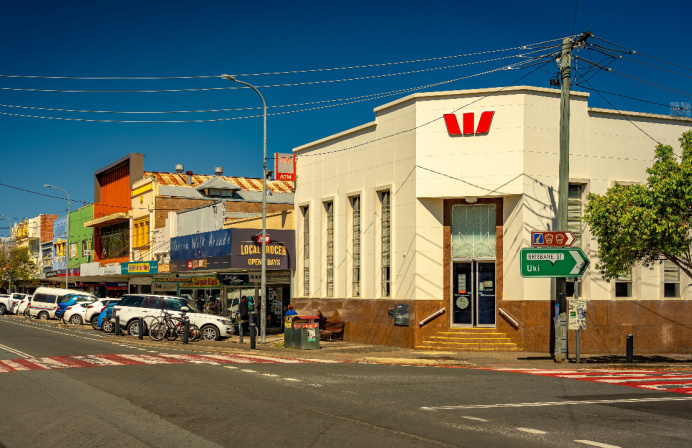
The value of deals made within Australia’s fintech industry has declined by 76 per cent year-on-year, while deal counts have dropped by a third, as the local market continues to be battered by both domestic and global economic headwinds, KPMG’s latest Pulse of Fintech H2’23 report has revealed.
The consultancy’s quarterly review of the financial technology sector revealed persistent challenges for the local fintech market over the last year, with investments in dollar value terms declining to levels not seen since 2017.
The second half (H2) of 2023 saw a total of AU$518 million (US$335 million) worth of investments funnelled to Australia’s fintech sector, with 41 deals (including M&As and funding rounds) secured.
While this deal value is up 32 per cent on H1’23, a sign perhaps of potential bounce back for the sector this year, the deal count is down by nearly a quarter for the same period.
On average in 2023, only 24 deals were closed in each quarter – significantly lower than the 2022 average deal count (35 deals per quarter secured) and that of 2021 (with 48 deals per quarter).
While, overall, H2’23 deal value shows a modest improvement, particularly in the latter quarter of the year, KPMG said it is still “too early to tell whether this trend will continue or whether the challenging market conditions will continue into 2024”.
Looking ahead, the consultancy predicts investment in the global fintech sector to remain relatively soft in the first half of this year. However, this may begin to trend upwards if predicted interest rate drops come to pass in the latter half of 2024.
“AI will likely continue to be a key focus, in addition to B2B solutions. M&A activity is also expected to rise as investors look for opportunities to buy distressed assets,” KPMG wrote.
According to Daniel Teper, partner, M&A and head of fintech KPMG Australia, locally, growth is expected to remain “modest… with interest rates unlikely to shift materially in the near term”.
“[Funding] and availability of capital are likely to remain a key challenge for local players,” he added.
Local dealmaking
Among the more notable of the Australia-based deals was the acquisition of A2B, a taxi payment platform operator, for AU$169.4 million (US$109.5 million) by Singapore-listed transportation firm ComfortDelGro.
Deferred payment loan provider Midkey raised $AU77 million (US$50 million) in its early VC stage, while Korean firm Mirae Asset Global Investments took a 50 per cent stake in Stockspot, investing around AU$28 million (US$18 million) in the robo-advisory firm.
Rich Data Co., which notably partnered with Westpac last year, raised AU$27 million (US$17.5 million), while SME lender Lumi raised an additional AU$23 million (US$15 million).
“As expected, 2023 was a challenging year for the Australian fintech ecosystem, with both total deal value and deal count experiencing a sharp decline compared to previous years,” Teper said.
“The local market, as with the majority of global markets, has been impacted by a number of challenges including, but not limited to, a higher inflation and corresponding higher rates environment, and a change in overall risk appetite amongst investors.”
Challenges on a global scale, but attractive prospects still out there
Globally, 2023 remained a challenging year for the fintech market, with total fintech investment dropping from US$196.6 billion (AU$303 billion) across 7,515 deals in 2022 to a seven-year low of US$113.7 billion (A$176.2 billion) across 4,547 deals in 2023.
KPMG blamed the drop on “a storm of global challenges — from the high-interest-rate environment and stubbornly high inflation in many jurisdictions, to conflicts in Ukraine and the Middle East — combined with concerns about valuations and the barren exit environment”.
The consultancy characterised fintech investor sentiment across the year – and H2’23 in particular – as “restrained”. Investors, it said, were “[enhancing] their scrutiny of potential deals, [and] putting a sharp focus on the viability of business models and on profitability”.
While all regions saw year-on-year declines, Asia-Pacific experienced the steepest drop in fintech investments – from $51.3 billion in 2022 to just $10.8 billion in 2023.
The EMEA region’s fintech investments, meanwhile, halved over the same period – from US$49.6 billion to US$24.5 billion.
The Americas showed the most resilience, with fintech investment dropping by a relatively modest 18 per cent – from US$95.4 billion in 2022 to US$78.3 billion in 2023.
The payments space continued to account for the largest share of fintech funding among the fintech subsectors, despite a drop from US$57.9 billion to US$20.7 billion between 2022 and 2023.
Of the major fintech subsectors, only proptech (property technology) and insurtech saw total investment rise year-over-year.
Proptech investment grew from US$4.1 billion to US$13.4 billion, while insurtech investment saw a modest jump from US$5.9 billion to US$8.1 billion.
The most attractive technologies for fintech investors by far – despite a drop in funding in 2023 – remained AI, attracting over US$12.1 billion in fintech investment.





